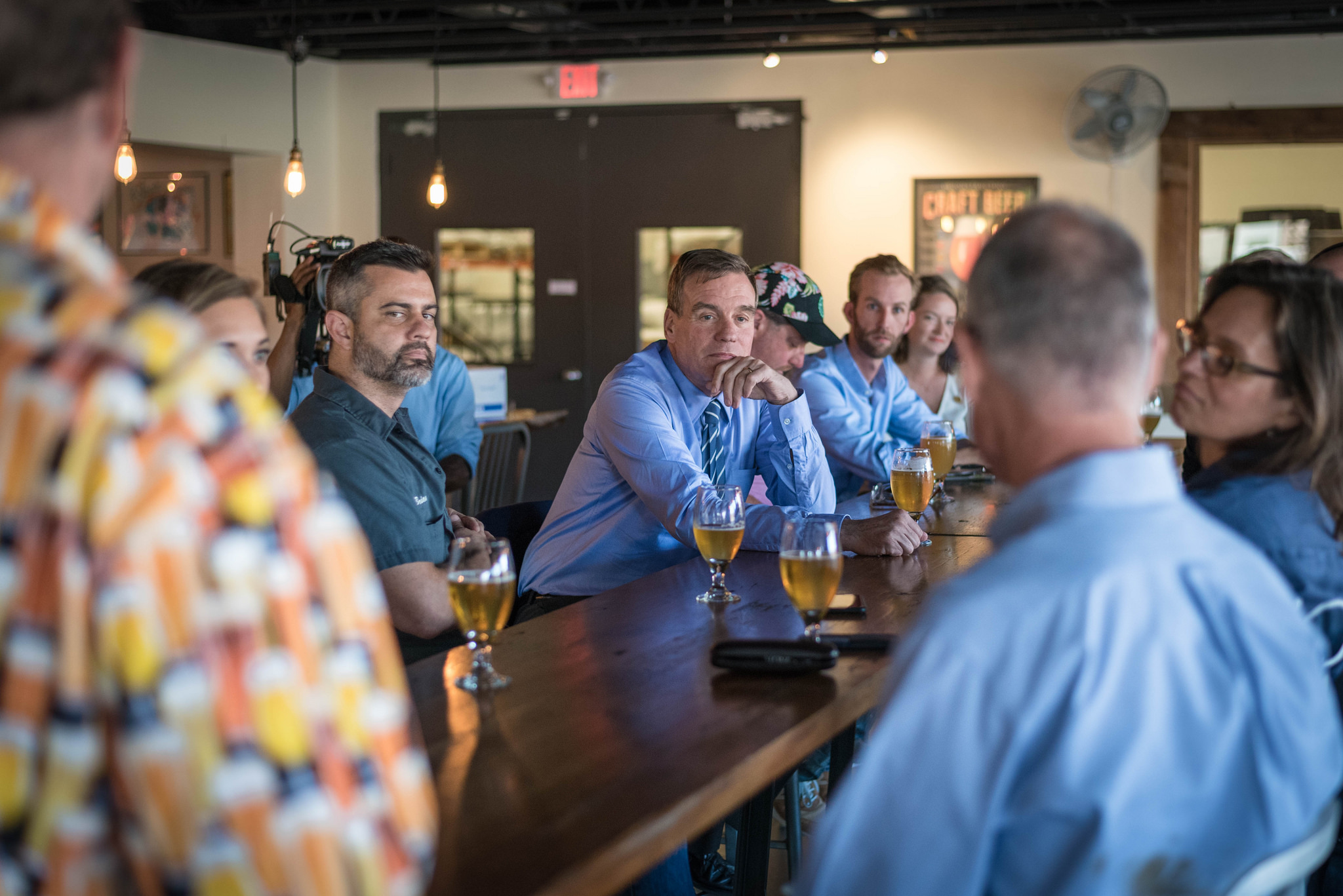
Sen. Mark Warner (pictured center) discusses tariffs at Hardywood Park in Richmond
By Jeff Maisey
As summer was about to begin, U.S. Senator Mark Warner (D-VA) hosted Virginia craft brewers and canners for a roundtable discussion on the economic impact tariffs imposed by President Trump would have on imported aluminum and steel. The sit-down conversation was held at Hardywood Park Craft Brewery in Richmond.
So what did Senator Warner hear from Virginia brewers?
“First of all, I heard a lot of confusion about how this tariff would actually affect them,” said Sen. Warner by phone. “They had some expectations they would see 10 to 20 percent increases in the cost to their cans. Many of them had 6-month forward contracts so the immediate impact wasn’t going to be as great.”
President Trump imposed the tariffs by relying on a rarely-used provision under the Trade Expansion Act of 1962, claiming the imports are a threat to national security. Several of the U.S.’s closest allies have already announced retaliatory tariffs in response to President Trump’s decision.
A 25 percent tariff on steel imports and 10 percent tariff on aluminum imports went into effect on March 23.
According to the Brewers Association, aluminum cans now represent 28.5 percent of packaged production for brewers. And for newly opened breweries, cans are the top packaging method used.
The Brewers Association issued this statement regarding the tariffs:
“The Brewers Association is concerned about both the aluminum and steel tariffs and the potential implications they will have on small and independent brewers…we do not believe that can sheet aluminum or the steel used to make brewing equipment poses a threat to national security. The American craft brewing industry is a great example of strong American manufacturing. In the last year, the more than 6,000 breweries located across the United States have directly employed more than 130,000 people and contributed more than $73 million to charities. These small businesses are located in almost every congressional district in the country and the Brewers Association opposes any policy that could negatively impact this growing American industry.”
Sen. Warner said he has been working on legislation with Sen. Bob Corker of Tennessee that basically states, if the President is going to declare a NATO ally a national security threat, then he ought to come to Congress for approval. The notion that importing steel and aluminum from Canada is a national security threat is a bogus claim, insisted Warner.
“This kind of strategy where we’re going to take an outrageous position and then move into something that still helps America, I think it’s dangerous,” Warner said, “but if he was getting results I’d give him grudging respect. So far, at least, I’ve not seen those results.”
The strategy employed — or deployed — by President Trump, whether with regard to North Korea and nuclear weapons or high-end German cars, has been to threaten the use of forceful actions and then negotiate a better deal from a position of strength. In the case of steel and other imports, the strategy is to impose sanctions upfront and wait for the other side to plead for a new trade deal. Whether it’s a successful tactic, as Senator Warner noted, is too early to tell. What we do know is such chaos creates great anxiety in the business community, especially with small, independent entrepreneurs.
So, what to do in the meantime?
“I would probably wouldn’t make a longterm business decision in the short run because you don’t know if this is the new normal or if this a short term tactic,” said Sen. Warner. “Almost every business guy I know says ‘we may not like what Richmond or Washington does,’ but what they want the most is some level of certainty and that’s not what we have at this point.”


